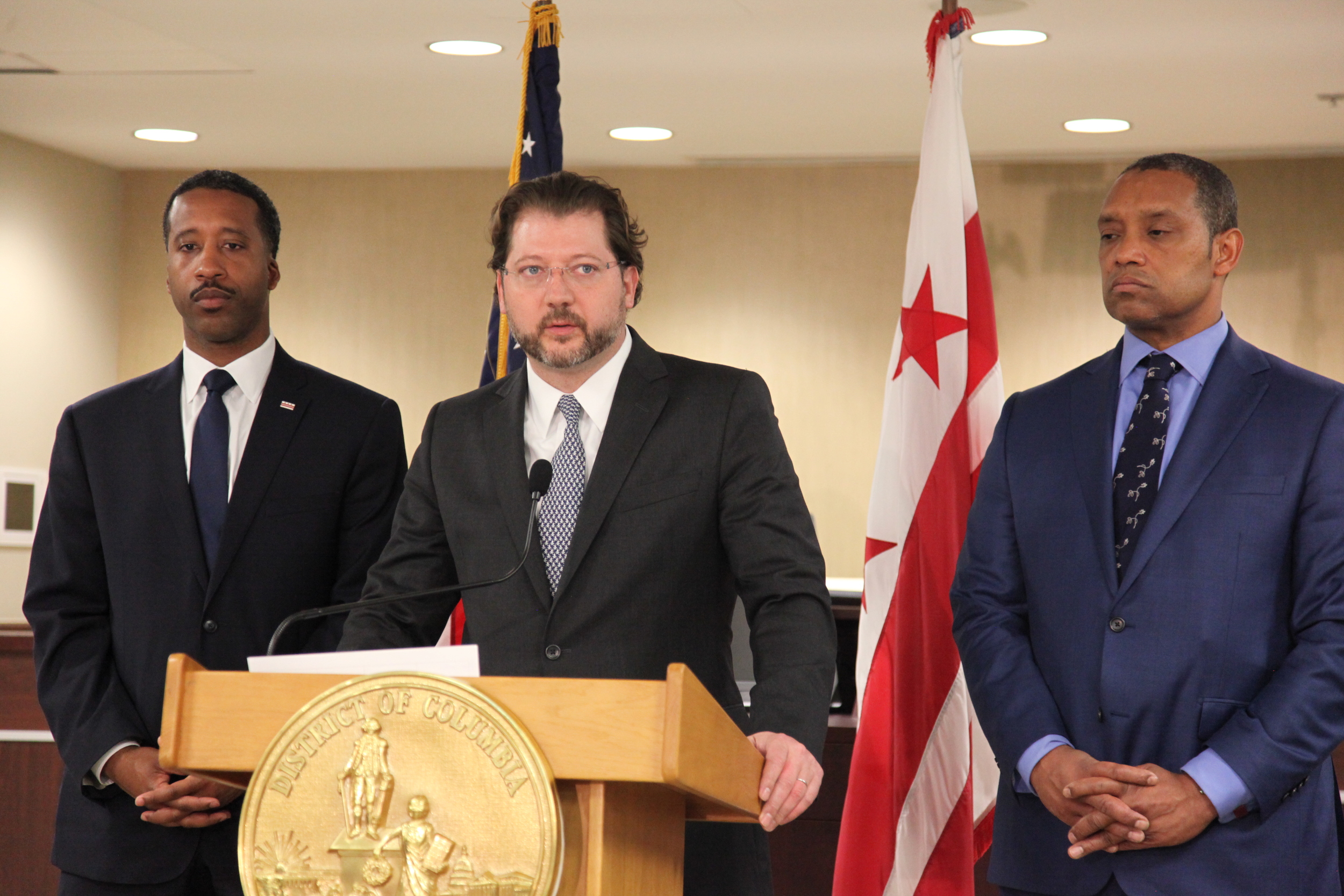By Kristi King, WTOP, May 12, 2015
WASHINGTON — New voices are joining the debate over a proposed power company merger and whether it would mean better or worse conditions for people now served by Pepco.
Twenty-two of the District’s 40 Advisory Neighborhood Commissions have declared their opposition to a deal for a Chicago-based company to buy Pepco, and they’re calling on Mayor Muriel Bowser to do the same.
“She needs to come out and say something,” said Judi Jones, a commissioner from Ward 4, said Tuesday at a rally on the steps of the Wilson Building.
“I don’t want to take a step backward,” At-Large D.C. Councilman David Grosso said at the rally in announcing his opposition to the merger.
“I don’t see Exelon as a full partner in the District of Columbia to continue the high standards we have for improving the environment and protecting the environment.”
Grosso and other opponents also fear that having Exelon, a company that generates power, as a parent company to Pepco, which is a distributor, will lead to higher rates.
D.C. Council members Mary Cheh, Charles Allen and Elissa Silverman are already on record saying they believe the merger would best serve the interests of power-company shareholders, but would eventually lead to higher utility rates, a degraded environment and lost local jobs.
The county executives from Prince George’s and Montgomery counties both want the Pepco-Exelon merger to go through. Rushern L. Baker III and Isiah Leggett say in a joint letter published in The Washington Post that the merger would increase power company accountability and the reliability of power supplied to the region.
A decision on the merger from Maryland’s Public Service Commission is expected Friday. A decision from the District’s Public Service Commission is expected this summer.
“The Pepco-Exelon is still under review by the mayor’s legal team. As the last jurisdiction to review the merger, the Bowser administration is committed to negotiating a resolution that best serves the interests of District residents and rate payers,” Bowser’s office said in a statement.
Pepco released the following statement about the proposed merger:
“Since announcing our proposed merger over a year ago, we’ve listened carefully to feedback in the District of Columbia. A diverse set of individuals and organizations — including District residents, business owners, organized labor, faith groups and local nonprofits — have voiced their support for the merger because they understand that it will provide substantial benefits to Pepco customers and communities, and to the District. A number of parties made constructive proposals, and in response, we substantially enhanced our proposed package to deliver even more value to the District and its citizens. Unfortunately, a few parties have taken a “just say no” position on the merger which, in our view, ignores the immediate and long-term benefits to customers and to the District that will not be available if the merger does not go forward.
“We believe that the merger is in the public interest and that the evidence supports this. The Public Service Commission will review the full record and rule in the interests of Pepco customers in the District. Pepco Holdings and Exelon have proposed a $34 million fund to be used for direct customer benefits in the District, and another $51 million in projected merger savings over 10 years will flow back to District customers through rates lower than they would be without the merger. We’ve enhanced our reliability performance commitments to reduce the frequency of outages by 36 percent and the length of outages by 40 percent in the District and have proposed stiffer financial penalties if we fall short of these goals. We’ve committed to keeping Pepco leadership, jobs and control local and to providing $16 million in charitable giving in the District over 10 years. We are committed to working to bring all of these benefits to the District when the merger closes.”
D.C. residents can comment to the Public Service Commission through May 25.







